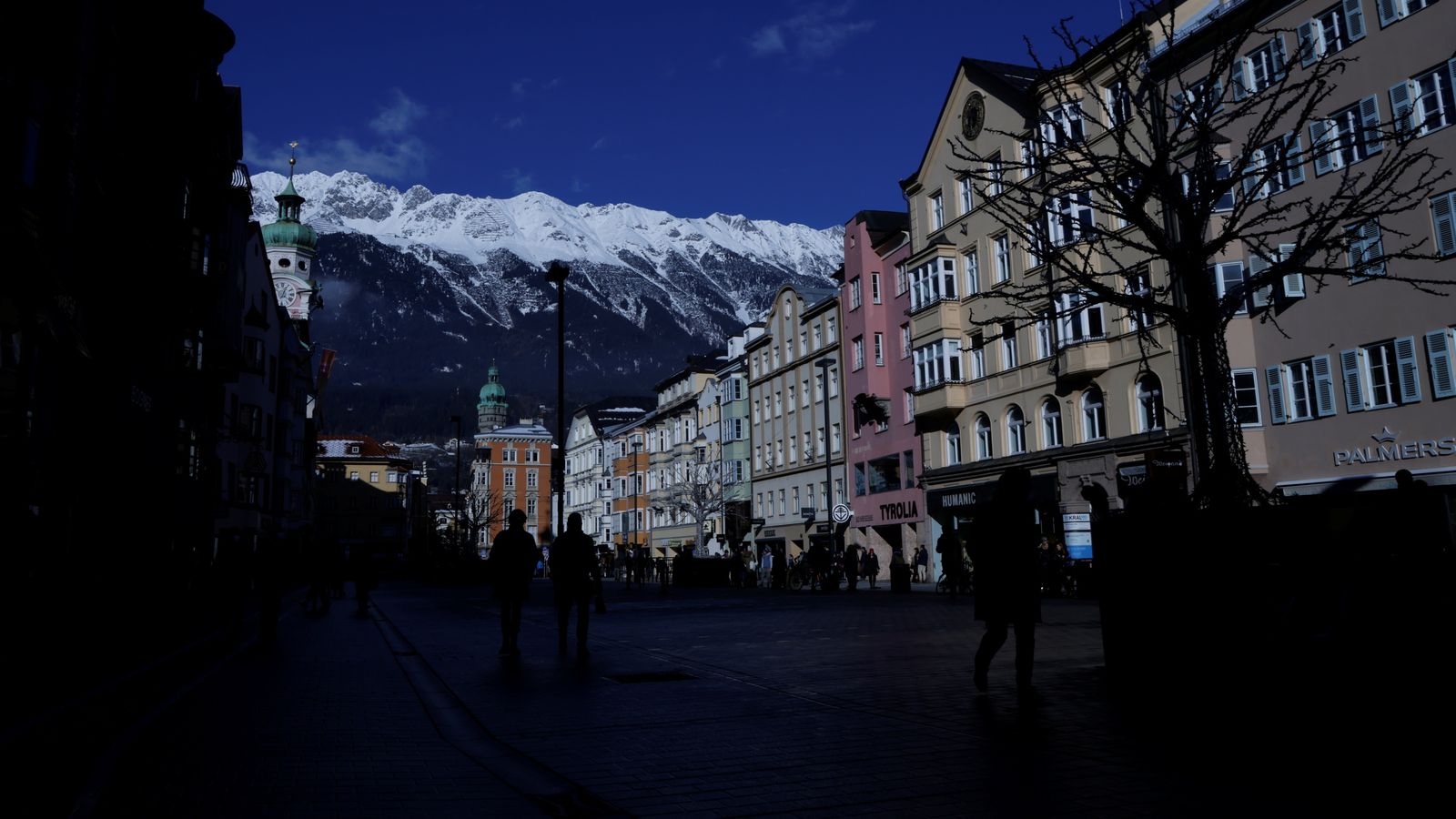Austria’s parliament has approved a universal COVID-19 vaccine mandate for adults – the first of its kind in Europe.
The mandate will come into force next month, with authorities writing to every household to inform them of the new rules.
From mid-March, police will start checking people’s vaccination status during routine checks.
Those who cannot prove their vaccination status after being asked in writing to do so will be fined up to €600 (£498).
Pregnant women, people who cannot be vaccinated for medical reasons, and those who have recovered from the virus in the past six months will be exempt.
Officials have said the measure is necessary as vaccination rates remain low.
As of Wednesday, 71.8% of the country’s 8.9 million population was considered fully vaccinated.
COVID: More than 100 British tourists refused entry to Austria after coronavirus rules website mix-up
COVID-19: Christmas holiday plans abandoned as European nations impose new coronavirus rules on UK arrivals
Europe’s COVID crisis: Are Christmas travel plans under threat?
MPs voted 137 to 33 on Thursday in favour of the mandate, which will apply to all adults aged 18 and over.
The bill must now pass the upper house of Austria’s parliament and be signed by President Alexander Van der Bellen – steps which are seen as formalities.
Health minister Wolfgang Mueckstein, speaking in parliament on Thursday, called the measure a “big and, for the first time, also lasting step” in Austria’s fight against the pandemic.
“This is how we can manage to escape the cycle of opening and closing, of lockdowns,” he said, saying it is about fighting not just Omicron, but any future variants that might emerge.
“That is why this law is so urgently needed right now.”
However, far-right Freedom Party leader Herbert Kickl called it “nothing more than a huge blow to the freedoms of Austrians”.
Austria’s governing coalition also announced on Thursday that 1.4 billion euros (£1.16 billion) will be invested in incentives to encourage unvaccinated people to get the jab – including a national vaccine lottery which will reward approximately one in ten people with a 500 euro (£415) gift voucher.






















